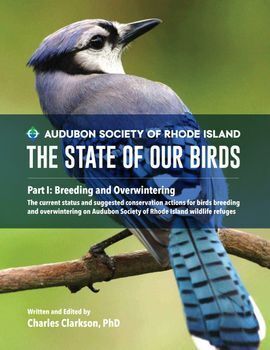Published January 31, 2023
Audubon Releases a Sobering Report on Declining Bird Populations
The State of Our Birds Report: Nearly every group of birds is declining. Audubon is working to bring them back.
Across North America, birds are declining. As indicators of environmental health, the loss of roughly 3 billion birds since 1970 portends changes to our habitats, water, air, and soil that deserve our attention and concern. The health of our bird populations is inextricably linked to our own.
As a leading conservation organization in Rhode Island, Audubon has dedicated itself to providing and managing habitat for birds in a capacity that would promote their survival in the face of climate change. To meet this goal, the organization developed the Audubon Avian Research Initiative in September 2021 to document the bird populations utilizing the nearly 9,500 acres of land managed by the Society.
Armed with the knowledge from the new Report, Audubon will begin a monitoring and management scheme to reverse the declining trends in our birds. Some of the findings from the report include:
- Greater than 1/3 of all birds found breeding on Audubon Society of Rhode Island wildlife refuges are experiencing long-term population decline. Only 1/4 of all species are showing signs of long-term increases in population.
- The greatest declines were seen in aerial insectivores, such as Barn Swallows, Bank Swallows, and Chimney Swifts and species associated with early successional and grassland habitats. These steep declines are likely due to habitat loss, decline in prey abundance (insects) and climate change.
- A total of nine species were selected as “Responsibility Birds.” These bird species will receive additional monitoring from Audubon to determine the steps that can be taken to mitigate current population declines and promote local and regional population growth.
There still is hope. “Conservation is a lengthy process,” explained Clarkson. “Stopping the decline is not going to happen overnight. But we need to get the message out now. It’s important to engage the public, not just the conservation community. The hope is that the more people that become aware of the loss of our birds, the more we can act together. Our collective actions and choices can make a real difference.”
When we help birds survive, we help each other. Learn more about the Audubon Society of Rhode Island Avian Research Initiative, at asri.org/AvianResearchInitiative


















